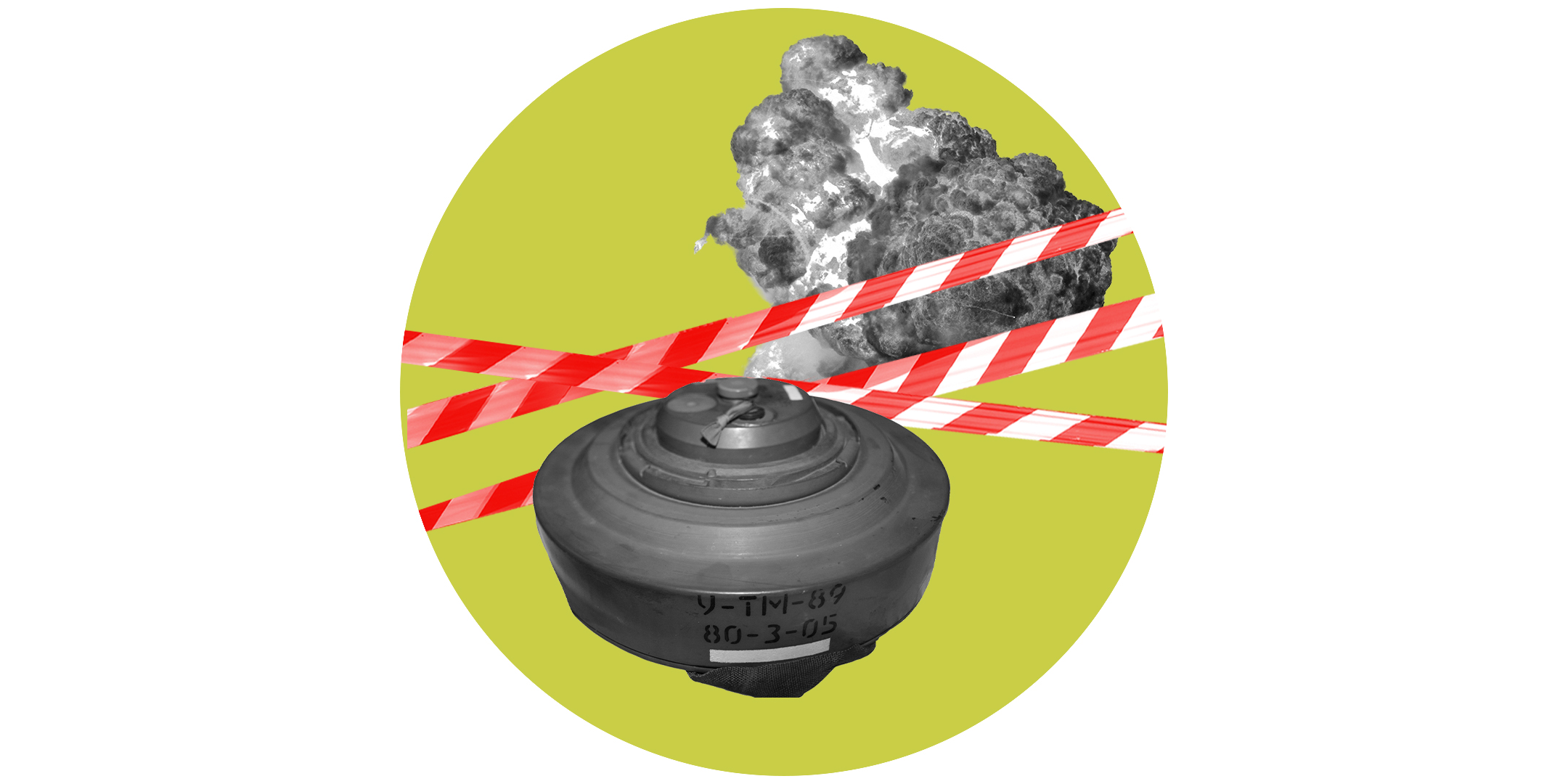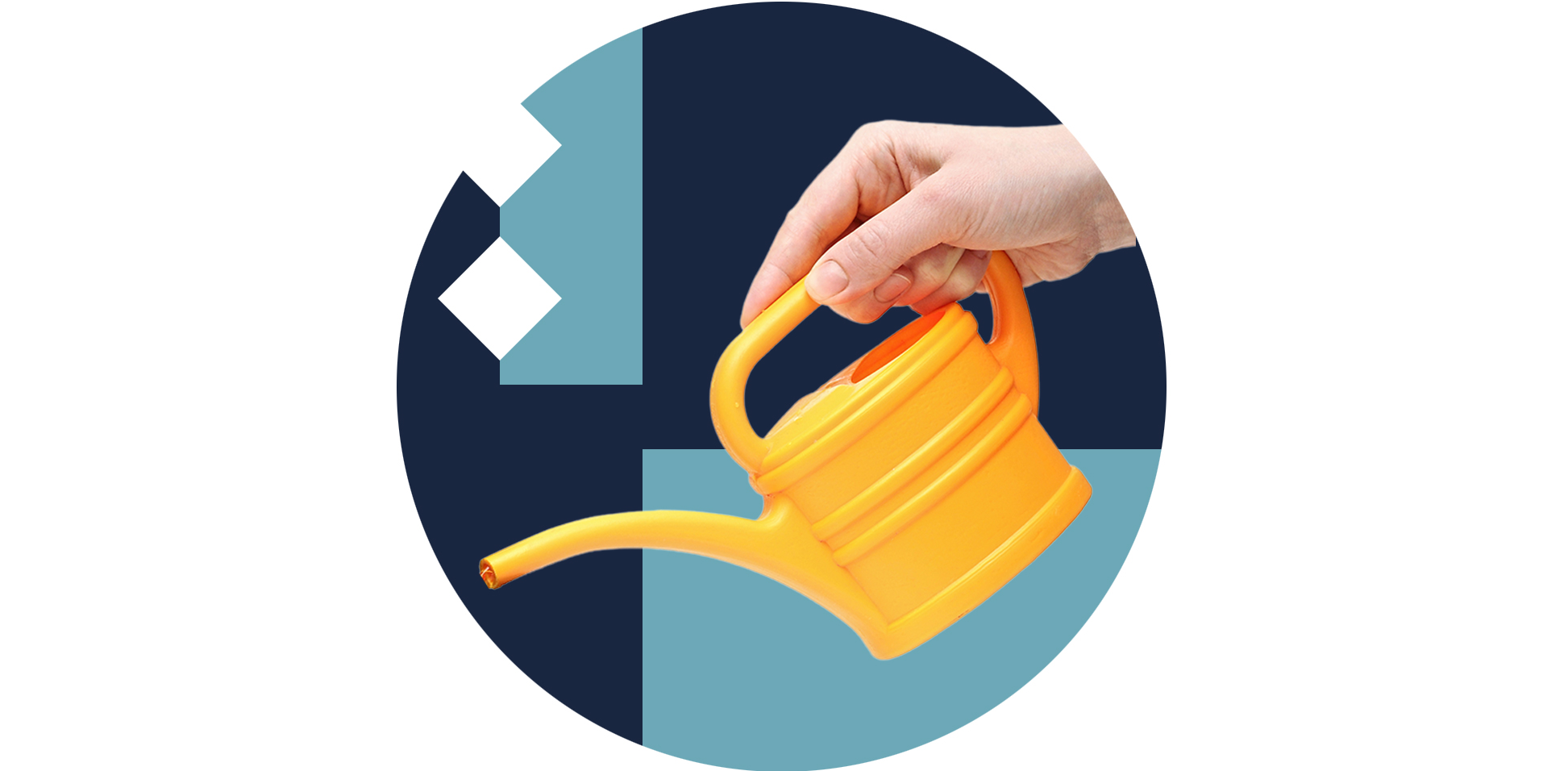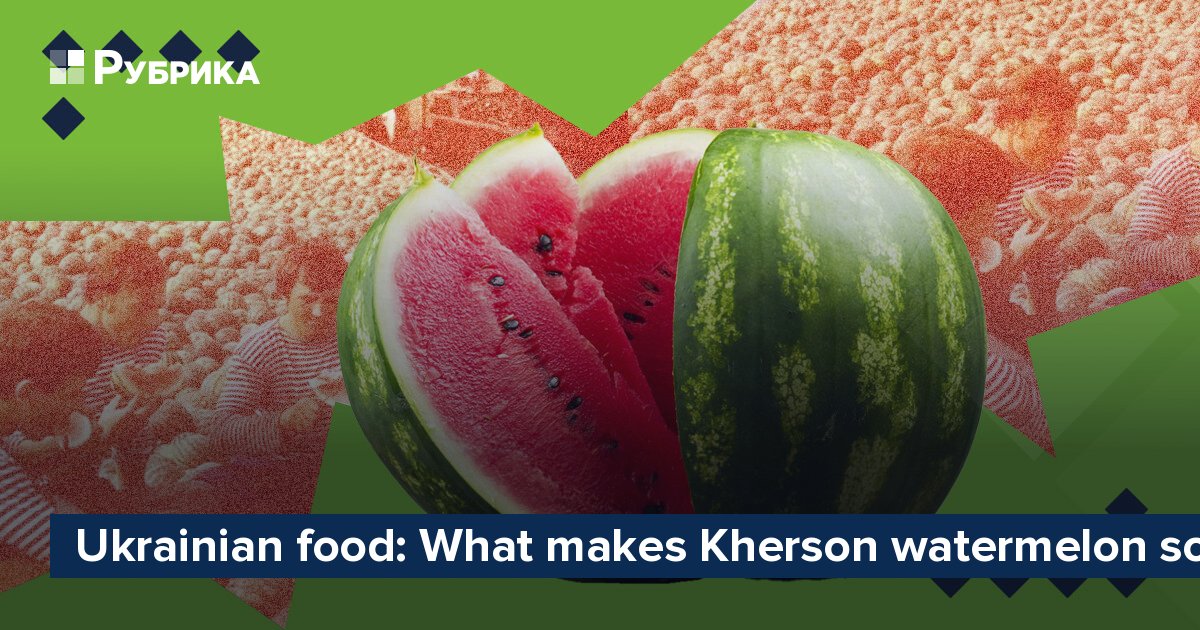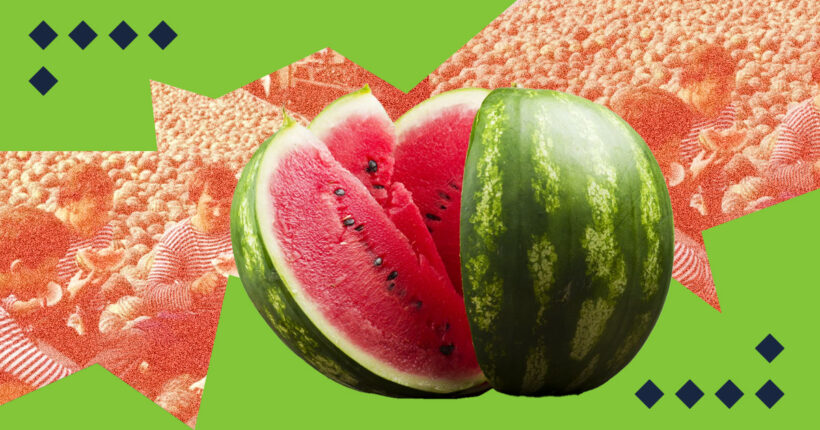
During summer in Ukraine, no fruit or berry is beloved more by all Ukrainians than the Kherson watermelon. We'd bet every person in Ukraine cherishes the memories of those hot summers in their childhood when they roamed free on their school break and quenched their thirst and sweet tooth with a slice of Ukrainian watermelon. That appreciation for the legendary berry from Kherson continues from the early years to adulthood: Ukrainians love watermelon so much that they erected a monument honoring it.
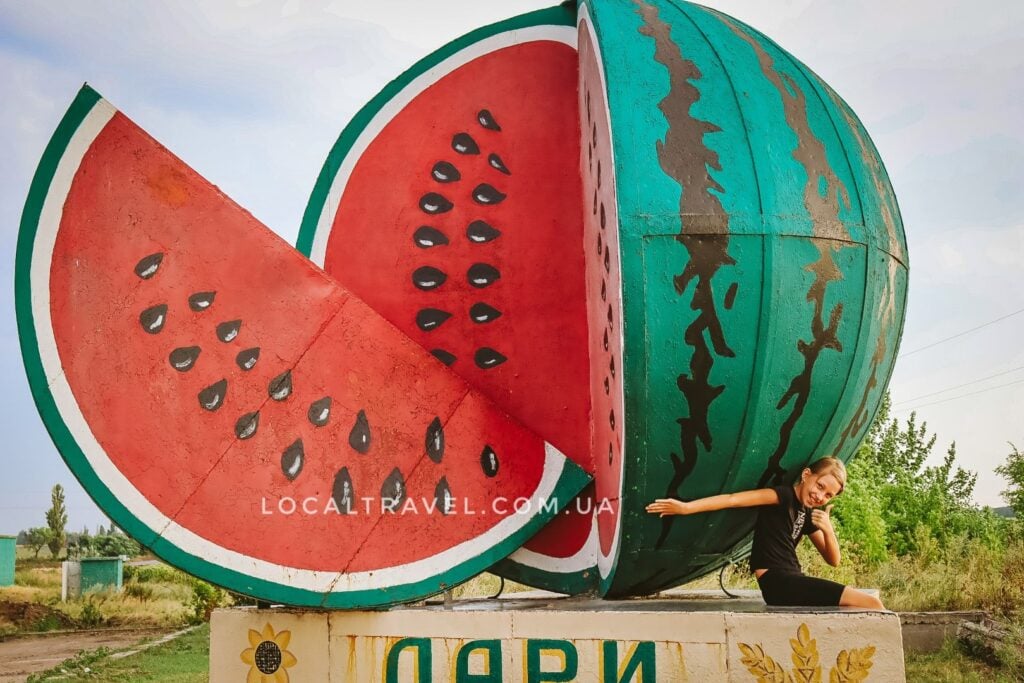
Ukrainian food: The monument to watermelon in the Kherson region. Photo: Local Travel
The Kherson watermelon is an iconic and recognizable gastronomic symbol of the southern Kherson region. The berry, placed on magnets, postcards, and other tourist souvenirs, has been cultivated in Ukraine since the 17th century. The first Ukrainian watermelon was likely grown in Crimea, the Kherson region's southern neighbor, during the Crimean Khanate. From there, the Crimean Tatars introduced watermelons to Kherson, where melon growing has developed since then, making the Kherson region the center of agricultural innovation.
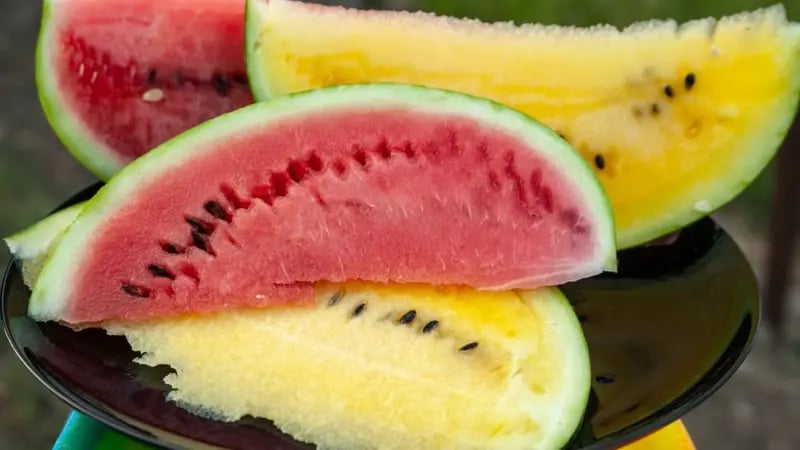
Ukrainian food: The Kherson region is famous for its different watermelon varieties. Photo: Yelizaveta Zharkykh
Kherson's farmers and scientists created many varieties of watermelons, including one with a yellow pulp called the Orange King, which was bred for people allergic to red pigment. All kinds of Ukrainian watermelons result from decades of research and experimentation in agricultural centers, particularly the Southern State Agricultural Research Station, which develops a new variety of watermelon or melon in an average of 7–8 years. The center was hosted in Hola Prystan, a town on the left bank of the Dnipro River, just 15 km from the regional capital, Kherson. Since March 2022, it has been under Russian military occupation.
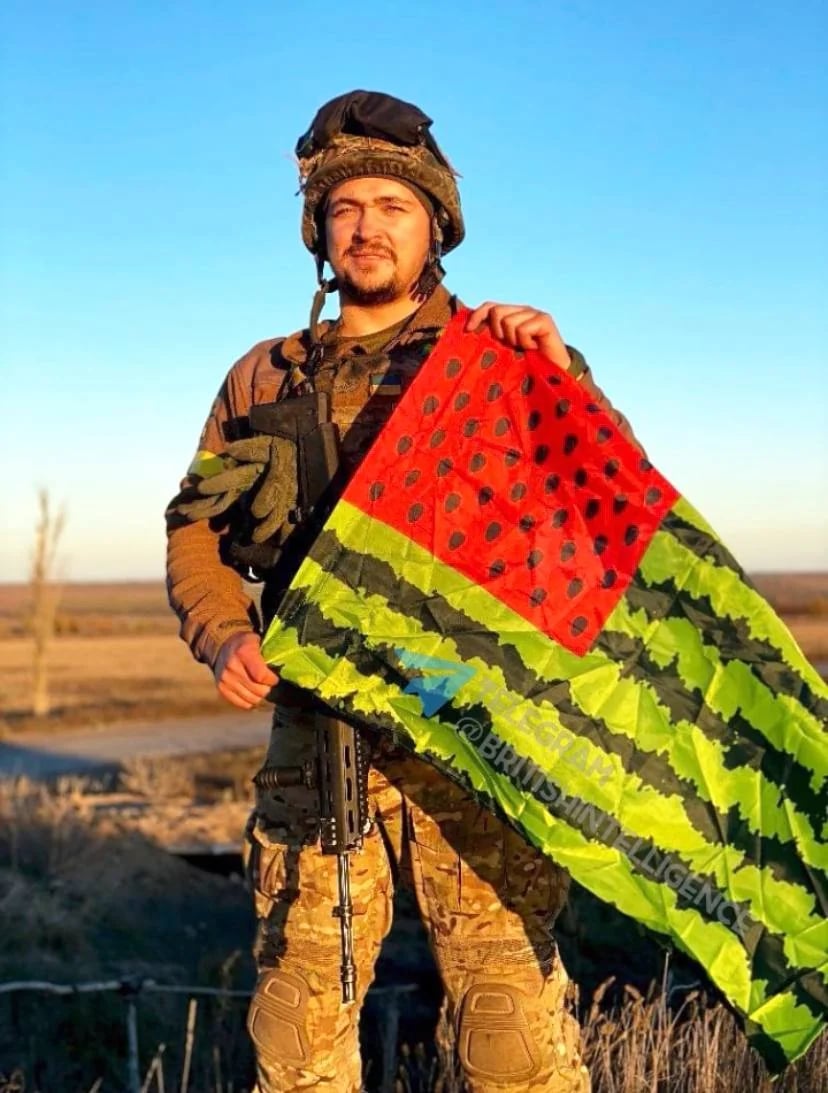
Ukrainian food: Ukrainian armed forces carried "Kherson watermelon flags." Photo: British Intelligence
Because of the war, the Kherson watermelon has also become a symbol of the people's resistance in the Ukrainian south. Ukrainian soldiers fighting in the 2022 fall counteroffensive, who ultimately liberated part of the Kherson region, were seen carrying "watermelon flags" in combat. When Kherson City and other towns and villages in the area were de-occupied, locals gifted the berry to Ukrainian troops as a sign of gratitude.
Why is Kherson watermelon so special?
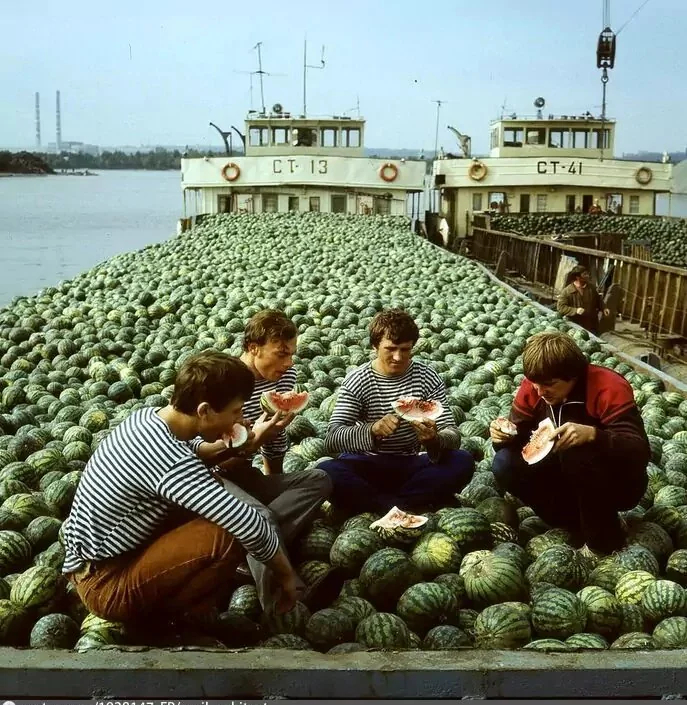
Ukrainian food: Four men eat Kherson watermelon on a barge in 1984. According to a yearly tradition celebrating the start of harvest season, a barge with watermelons goes up the Dnipro River from Kherson to Kyiv. Photo: Vitalii Kuzovkov
Ukraine is one of Europe's largest producers of watermelons, with local farmers having grown about 400,000 tons of this fruit in 2021. Before the war, 50% of all watermelons in Ukraine were from the Kherson region, supplying cities nationwide with truckloads and even barges of this refreshing fruit. Kherson watermelons have always been in demand in Ukraine and other European countries, like Lithuania, Estonia, Latvia, Poland, Germany, Romania, and Denmark. In 2019, 4,670 tons of watermelons were exported.
The rich harvests are due to the perfect sunny climate and virgin sandy loam black soil for growing watermelons. The fruit grows well on rain-fed or irrigated land from late June to late September and acquires an excellent, sweet taste, which explains its popularity. The Kherson watermelon is so sugary and fragrant that Ukrainians use it to make honey and viscous syrup called bekmez.
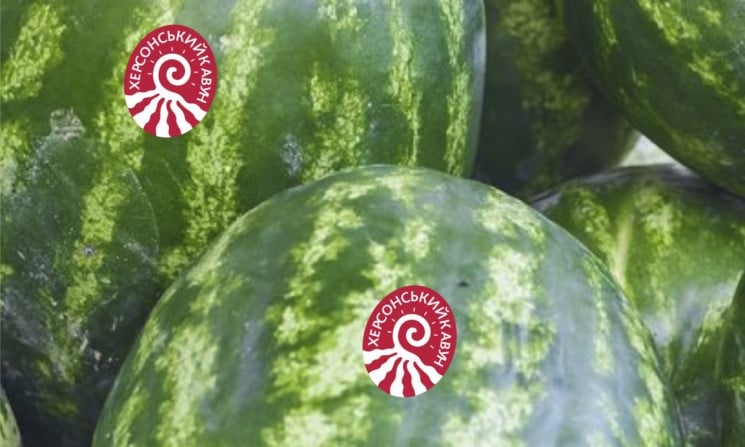
Ukrainian food: Kherson watermelon brand stickers. Photo: Depo Kherson
The Kherson watermelon became even more special because it recently received the status of a brand, like many famous foods and drinks worldwide, such as Champagne and Bordeaux wines, Colombian coffee, or Gouda or Feta cheeses. The Kherson watermelon obtained a protected geographical indication (PGI) to label fruit grown in the Kherson region's unique sandy soils and climate, specifically areas of Skadovsk, Kherson, and Kakhovka.
"Kherson watermelon is a special food product traditionally grown for centuries in the lower Dnipro sands," Yurii Palichev, the executive secretary of the Kherson Watermelon Producers Association, commented on his organization's achievement. "It is distinct from other watermelons because it is much sweeter, contains more sugar, has fewer nitrates, and tastes significantly better." The areas where Kherson watermelon is predominantly grown are currently under Russian occupation. "We believe that when we liberate our lands, everyone will be able to taste a real Kherson watermelon," Palichev added.
Ukrainian farmers who used to cultivate watermelons on the now-occupied left bank of the Dnipro River in the Kherson region keep going and grow watermelons on liberated territories. This year, the harvest of Kherson watermelons reached the pre-war level: 160 tons of fruit have so far been collected in 2024. Kherson watermelon continues to symbolize resistance as farmers keep up the watermelon growing tradition, and Ukrainian soldiers fight to repel the enemy from Ukraine's south.
Если вы нашли ошибку, пожалуйста, выделите фрагмент текста и нажмите Ctrl+Enter.



